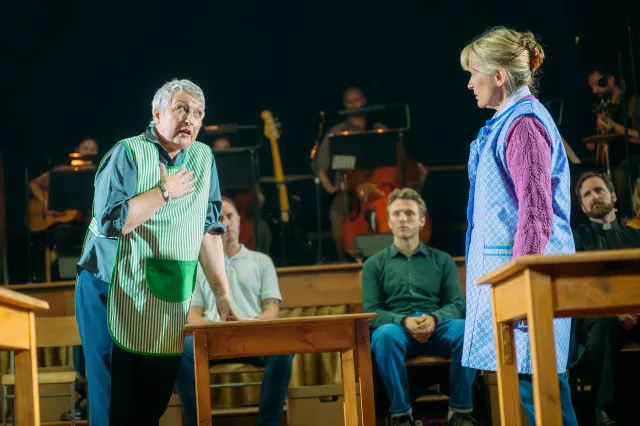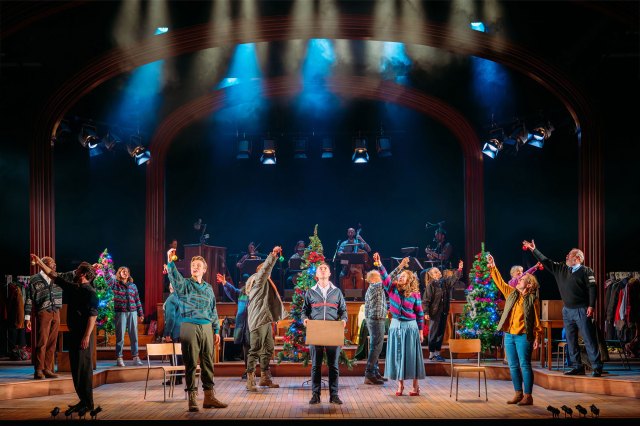 Blythe Duff and Hilary Maclean in Small Acts of Love, © Mihaela Bodlovic
Blythe Duff and Hilary Maclean in Small Acts of Love, © Mihaela Bodlovic
Glasgow’s Citizens Theatre, known affectionately as the Citz, is one of Scotland’s major producing theatres, and there has been a gaping hole in the nation’s theatrical landscape for the last seven years due to its closure for a major refurbishment. Now reopened, they have spruced up the auditorium with commendably comfortable seats and transformed the previously cramped foyers with staircases and bars that give it a fresh feeling and open the space invitingly to the outside world.
A big occasion like this needs a big theme, and the Citz has rolled out its A-team for its reopening production, uniting playwright Frances Poet with composer Ricky Ross (beloved of Deacon Blue) and the theatre’s artistic director Dominic Hill, for a production in collaboration with the National Theatre of Scotland about the 1988 Lockerbie bombing. The downing of Pan Am flight 103 remains the biggest loss of life in a single event in British history, so it’s hard to imagine a bigger topic, nor one with as close a connection to Scotland.
The script deals not so much with the bomb itself as with its impact on the families and the townspeople of Lockerbie, tracing the backstories of many of the victims and then casting forward to look at how they supported one another in their loss, the “Small Acts of Love” of the title. On the surface, there might appear to be a whiff of Come From Away about it, but this is very much a play with some songs rather than a musical, and the material is handled very sensitively, put together after years of research and much consultation with the families.
 The cast of Small Acts of Love, © Mihaela Bodlovic
The cast of Small Acts of Love, © Mihaela Bodlovic
The script jumps with agile skill between different times and locations, and the cast inhabit several characters each, differentiated by something as simple as a change of accent or jacket. It also shows moving attention to detail in places, by noting, for example, the way the birds stayed away from Lockerbie because of the stench of the aviation fuel, or the fact that when the bodies were returned to the US, they were labelled insensitively as “shipments.”
Some of the dramatic condensing is a little clunky, like the Lockerbie girl going on a university exchange to America, whose relationship with her father is unconvincingly strained because he struggles to tell her his role in the bomb’s aftermath. Nor is the script above slathering on some of the details to dial up the poignancy of particular situations. On the whole, however, it’s done sensitively and carefully, and the cast play their roles as though they’re aware of the weight of what they’re doing, particularly Blythe Duff as the village stalwart who works with the victims’ belongings, or Robert Jack as the tortured town priest.
Poet’s script and Ross’s music manage to pitch the mood so that it’s moving but never lachrymose. The songs don’t really contain any earworms, but they provide effective atmosphere, with influences from folk and Americana, and the upbeat final song about embracing life and human empathy ends the show on a high.